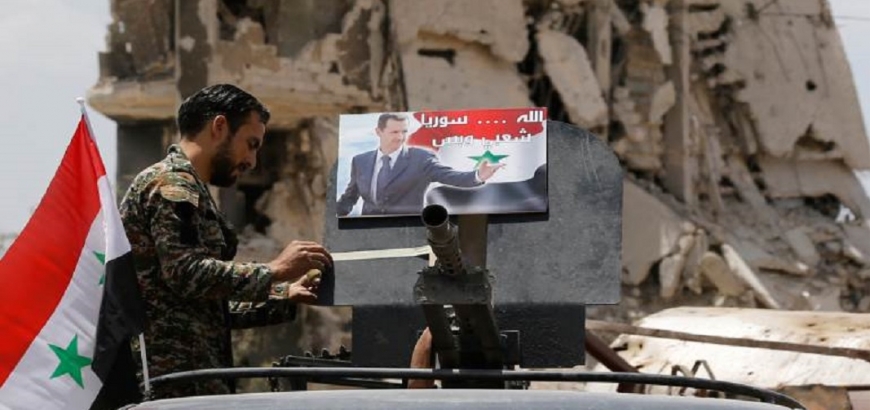Recent Assad government allegations about corruption in Syria and the precautionary freezing of the assets of influential regime figures and loyalist businessmen has led to speculation about what is behind the timing of this campaign.
Analysis around the question has varied, with analysts saying that the Assad regime’s aim with the “anti-corruption campaign” is to send a message to businessmen and wealthy individuals that they need to compensate the regime for the resources it has lost in recent years, in addition to the fact that the Assad regime needs funds given reports of a lack of foreign currency in the country. Others have not ruled out that the Assad regime’s “war on corruption” is nothing but a “media bubble” which the regime has perpetuated.
The Assad regime’s Prime Minister Imad Khamis said in mid-September that major corruption cases had been identified and that the next few weeks would show names of people being held to account that would be surprising. After that, there was a precautionary freeze on the assets of former Education Minister Hazwan al-Wizz, along with 87 other figures, including the current Deputy Education Minister Saeed Kharsani.
The regime fights itself
Economic expert Firas Shabou told Alsouria Net: “The regime is founded on corruption. Without corruption, it would not survive. The reports about fighting corruption are delusional, because fighting it would mean that the regime is fighting itself. Businessmen accused of corruption in huge amounts have limited authority – even the ministers are not in sovereign positions. They are just scapegoats.”
He said that, “With this campaign and the previous ones, the regime is restricting the power of Syrian businessman Rami Makhlouf and others, and wants to send a message to businessmen and wealthy figures that no one is immune from the security and judiciary and that anyone could lose their wealth through corruption allegations.”
Shabou noted that “the Syrian lira has entered a dark tunnel and it’s not clear where it will end in light of the lack of general aspects of economic life.” He said that the regime is currently trying to control the economy without finding actual solutions. He said that “the economic solution will not be achieved without a political solution.” He added that “today the regime needs to regain what it lost in terms of the expenses committed to Russia and Iran or even the expenses inside Syria where there is no economic life.”
Who will fill the treasury now?
Journalist Ahmed Kamel told Alsouria Net that “the Syrian regime needs money because of what is required by reconstruction on one hand and the division of power with Russia, Iran and Hezbollah in the region on the other hand, as well as the losses in areas outside its control in northern and eastern Syria, which have pushed it to an anti-corruption campaign.”
Kamel said that “the regime could also be doing this to reduce the pressure on Syrians in the areas under its control and to make them cope better with the deteriorating economic situation.”
Cosmetic operation
Economist analyst Mustafa al-Sayed told Alsouria Net that “the war on corruption is nothing but a media bubble perpetuated by the regime,” adding that “the war of rumors is consuming part of the collective imagination, keeping people from uncovering the basic tools of the thief.”
Sayed said that “the regime has been pursuing the anti-corruption scenario since the days of Hafez al-Assad, who established an investigation committee in 1977 into illicit gains under the pretext of fighting corruption.”
He said that on Sept. 15, Prime Minister Khamis had said that “the assets of the Syrian Central Bank fell over the first years of the crisis and daily oil production fell from 380,000 barrels per day to zero,” adding that “the government needs 200 million dollars per month to pay for the oil tankers needed by Syria, as well as 400 billion lira to restore the gas sector to operation.”
This article was translated and edited by The Syrian Observer. The Syrian Observer has not verified the content of this story. Responsibility for the information and views set out in this article lies entirely with the author.


